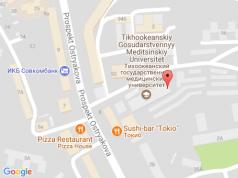The new center is very modern and comfortable. Everything corresponds to this definition - starting with the operating unit with the latest equipment and 11 individual delivery rooms.
New intensive care unit and intensive care The newborn hospital is equipped with the most modern equipment in the world to create a comfortable microclimate for babies with very low birth weight. In chambers for such newborns, it is difficult to change and regulate temperature, humidity, maintain heat and heating - all in order to bring conditions closer to intrauterine life. In addition to ultra-modern equipment for little Kaluga residents born ahead of schedule, your own personal octopus is provided.
This is a unique thing, in intensive care we create some semblance of a uterus, the child, being in the uterus, continues to live, he touches the umbilical cord and these legs of an octopus are some kind of umbilical cord, he grabs them, sorts them and does not interfere with caring for himself, does not pull them out of himself catheters and tubes,
- said Alexey Mostovoy, head of the neonatal resuscitation and intensive care unit of the Kaluga Perinatal Center.
The perinatal center on the basis of the Kaluga Regional Hospital is a group 3 obstetrics institution for the delivery of pregnant women of a high perinatal risk group and nursing of premature babies, incl. born with extremely low body weight.
WORK OF THE CENTER
· Emergency (emergency) health care patients are provided around the clock.
· Planned hospitalization patients is carried out on weekdays from 09:00 to 14:00.
· The consultative and diagnostic department is open from 08:00 to 16:00.
· Conversation with the attending physician or head of the department - from 12:00 to 15:00 on weekdays.
· Reception of the Deputy Chief Physician for Obstetrics and Gynecology and the Deputy Chief Physician for Children - weekdays from 09:00 to 16:00 (by agreement).
· Information desk - weekdays from 09:00 to 17:00.
· Birth registration weekdays from 09:00 to 17:00.
VISITING HOURS
· Obstetric Department of Pregnancy Pathology
· Obstetric Physiological Department- daily from 12:00 to 19:00 in single rooms, meeting in the hall - daily from 12:00 to 19:00.
· Obstetric observation department- daily from 12:00 to 19:00 in single rooms, meeting in the hall - daily from 12:00 to 19:00.
· Anesthesiological intensive care unit № 2 - daily from 13:00 to 15:00 (by agreement).
· Neonatal intensive care unit
· Department of Pathology of Newborns and Premature Children- daily from 14:00 to 18:00 (by pass).
RECEIVING TRANSMISSIONS
Every day from 08:00 to 19:00.
The transfer of products is carried out in accordance with the list of permitted products.
FORBIDDEN
1. Visits by relatives of patients to all departments of the PC during the introduction on the territory of the Kaluga Regional clinical Hospital» quarantine.
2. Visiting the PC by children under 14 years of age.
3. Passage of visitors to the maternity ward, in maternity room observational obstetric department (except for partner births), transfers and passage of visitors through the emergency department.
4. Patients should visit other departments (except for the department of pathology of newborns and premature babies, the intensive care unit for newborns), and receive patients from other departments.
5. Visitors should sit (lie) on the patient’s bed. Place items on the patient's bed, changing table, and crib.
VISITING RULES
1. Visitors must not have any signs of acute infectious diseases(runny nose, cough, sore throat, malaise, fever, rash, intestinal disorders). Medical certificates of absence of diseases are not required.
2. Before visiting the branch, the visitor must remove outerwear, put on shoe covers, a robe, and wash your hands thoroughly. Mobile phone and others electronic devices must be turned off.
3. Visitors under the influence of alcohol (drugs) are not allowed into the department.
4. Smoking is prohibited in the departments of the Perinatal Center.
5. The visitor undertakes to maintain silence, not to violate the established internal rules of the department, not to impede the provision of medical care to other patients, not to touch medical devices, and to strictly follow instructions medical personnel.
6. No more than two visitors are allowed to be in the room at the same time.
7. Visits from relatives are limited during rounds and manipulations in the ward.
8. The visitor must have an identification document with him.
9. In case of violations of the visiting rules, the administration has the right to refuse visits.
PARTNER BIRTH
1. One adult may be present at the birth (at the discretion of the woman in labor).
2. Approval for partner childbirth is required from the head of the department or the responsible doctor. The partner must be familiar with the instructions for visitors.
3. The birth partner must have:
The results of fluorography (on hand or on an exchange card) are no more than 1 year old,
A certificate from a general practitioner at your place of residence confirming that you have been vaccinated against measles or immunosuppression, no more than 1 month old (the rule applies to the period of validity of the order of Rospotrebnadzor),
A change of clean clothes made of cotton fabric and clean leather or rubber shoes (shoe covers are not allowed), a mask, a cap,
There are no signs of acute infectious diseases (a medical certificate is not required), the birth partner should not be under the influence of alcohol (drugs).
HELPFUL INFORMATION
(take with you)
DOCUMENTATION:
· Passport
· Exchange card
· Insurance policy
· Contract for childbirth
· Direction
· Birth certificate
PERSONAL ITEMS:
To the maternity ward:
Washable slippers
· Hygiene supplies ( Toothbrush, toothpaste, soap, sanitary pads, towel)
· Bottle of still water 0.5l (for K/S 2l)
· Cellular telephone and charger
· Elastic stockings
· Mug, plate, spoon
To the postpartum ward:
· Hygiene supplies (toothbrush, toothpaste, towel), personal items as desired (any comfortable clothing)
· Sterile pads for women in labor
· Face and body skin care products
Cotton bra
Breast pads
Means for the prevention of cracked nipples
FOR BABY:
· Diapers (30/35 pcs)
· Wet wipes
· Baby diaper cream
· Baby soap (liquid)
Things for the child upon request (diapers, vests, caps, socks)
Directory of telephone numbers of the perinatal center
|
Information |
ext.155 |
|
|
Deputy Chief Physician for Obstetrics and Gynecology |
ext.167 |
|
|
Deputy Chief Physician for Children |
ext.168 |
|
|
ext.119 |
||
|
Observational obstetric department |
ext.124 |
|
|
Department of Pregnancy Pathology |
ext.129 |
|
|
Physiological obstetric department |
ext.132 |
|
|
Neonatal department |
ext.137 |
|
|
Neonatal intensive care unit |
ext.145 |
|
|
Department of Neonatal Pathology |
ext.149 |
|
|
Obstetric intensive care unit |
ext.141 |
|
|
Maternity ward |
ext.199 ext.200 |
UNIFIED HELP SERVICE 277-677
In December 1978, the leadership of the region, city, regional health department, city health department, permanent deputy commission of the regional executive committee decided on the need to build a new city maternity hospital.
In 1979, funding was opened for design and estimate documentation. Responsibilities for construction, documentation and everything necessary for this were assigned to the head of the city health department A.A. Korneev.
A maternity hospital project was adopted, according to which several maternity hospitals had been built in the country by this time. But when considering this project, there were many comments, many of the data were already outdated, after the documentation was delivered and transferred to the Tulgrazhdanproekt Institute, a link was made to the allocated location. When the site was allocated, several proposals were received. It would be advisable to build a maternity hospital with 250 beds on the site of a multidisciplinary hospital. This is either a regional hospital, city Hospital No. 1, hospital named after. ON THE. Semashko. None of the proposals were accepted by the chief doctors of the hospitals. The maternity hospital began to be built on a site free of buildings, in a vacant lot.
The main customer for the construction was the city administration represented by the head of the city health department, A.A. Korneev.
From obstetric service a doctor was sent from maternity hospital No. 1 (CDC) obstetrician-gynecologist proven himself as a specialist and as an organizer. When construction began, there were a lot of consultations, approvals, etc. But main question arose around building materials that did not satisfy with their quality, savings were felt in everything. In 1985, upon completion of construction important issue the institution was put into operation. At this moment, they began to resolve the personnel issue. In 1982, the leadership in the person of the chief physician of maternity hospital No. 1 (MCD) changed.
In a new, built, opening maternity hospital No. 2 in Tula from maternity hospital No. 1 (CDC) in 1984-1985. Many doctors and paramedical personnel have transferred. These were already trained, professional, highly qualified personnel.
The opening of the new maternity hospital No. 2 in Tula took place on December 31, 1985. Already in 1986, more than 1,200 births took place within the walls of this institution.
From July 1, 1988, the maternity hospital was included in the Tula Regional Hospital and thereby acquired the status regional institution. This was a very significant step in development medical institution, which made it possible to significantly increase its level as an institution performing the functions of a regional one, i.e. responsible not only for those patients who are within its walls, but also for patients throughout the Tula region.
Since 1999, the maternity hospital began to carry out the functions of a regional perinatal center. Methods of perinatal diagnostics, on-site methods of work, and family-oriented technologies have been further developed. A newborn pathology department was opened and the second stage of nursing low birth weight babies was opened. The purpose of this transformation was to organize a three-level system of care for pregnant women, women in labor, postpartum women and newborns, headed by the regional perinatal center. The main objectives of the perinatal center were and are to reduce infant and maternal mortality, based on the development of new medical technologies and organizational and methodological work. The main functions of the institution were:
Ensuring accessibility High Quality specialized medical care for pregnant women, women in labor and postpartum women and their newborn children, as well as gynecological patients;
- development of the material and technical base of health care facilities;
- improving the quality of professional training of personnel working in the maternal and child health service;
- carrying out research work to create diagnostic and treatment standards in relevant branches of science.
24-hour medical assistance - no holidays or weekends! For 13 years now, the MD GROUP Clinical Hospital (MD PROJECT 2000 JSC) has been providing a full range of outpatient and inpatient services in the field of obstetrics, gynecology, infertility treatment, pediatrics, molecular genetics, medical diagnostics, urology, traumatology, as well as general, plastic and endovascular surgery.
Qualified doctors, modern equipment and high-quality service - these are the three main components of treatment at the MD GROUP Clinical Hospital.
Mark Arkadyevich Kurtser, the founder of the MD GROUP Clinical Hospital, succinctly formulated the mission of his company: “The health of the whole family is in good hands.” It is this responsible task that all the center’s employees successfully cope with every day.
At the MD GROUP Clinical Hospital the following is carried out:
Management of pregnancy, including in patients at risk and with various extragenital diseases.
Management of childbirth.
Diagnosis and treatment of all types of infertility, assisted reproductive technologies (IVF).
Prenatal diagnosis chromosomal pathology fruit, genetic counseling before planning a pregnancy.
Molecular genetic diagnosis of hereditary diseases.
Ultrasound examinations pregnancy expert level, gynecological diseases, diseases internal organs and vessels. The ultrasound service is available 24 hours a day.
Diagnosis and treatment (operative and conservative) of gynecological diseases.
Treatment of uterine fibroids using uterine artery embolization. This treatment method allows you to maintain reproductive function, significantly reduce the number of complications compared to surgical method treatment. In this case, the highest treatment efficiency is achieved (up to 100%).
Diagnosis and treatment of diseases of internal organs in patients of different ages.
More than 4,000 types of laboratory tests.
X-ray studies in children and adults.
Nursing premature and low birth weight babies. Treatment of newborns. Hospitalization is carried out jointly with the mother.
Monitoring the development of children at the children's clinic and at home.
Inpatient treatment of children from 0 to 16 years old.
24-hour emergency pediatric medical care team available.
The center operates a 24-hour on-site assistance service for breastfeeding, which helps patients with lactostasis and hypogalactia directly at home at any time of the day. A 24-hour pumping service comes to your home in any area of Moscow and the Moscow region.








